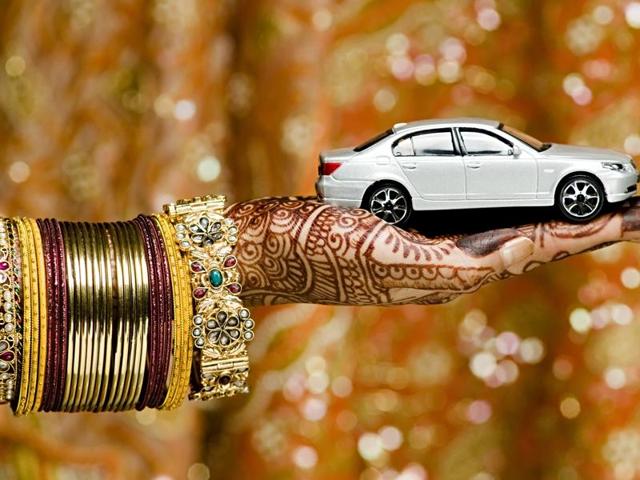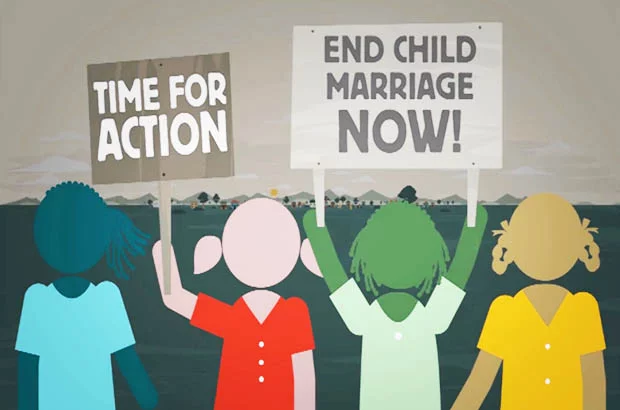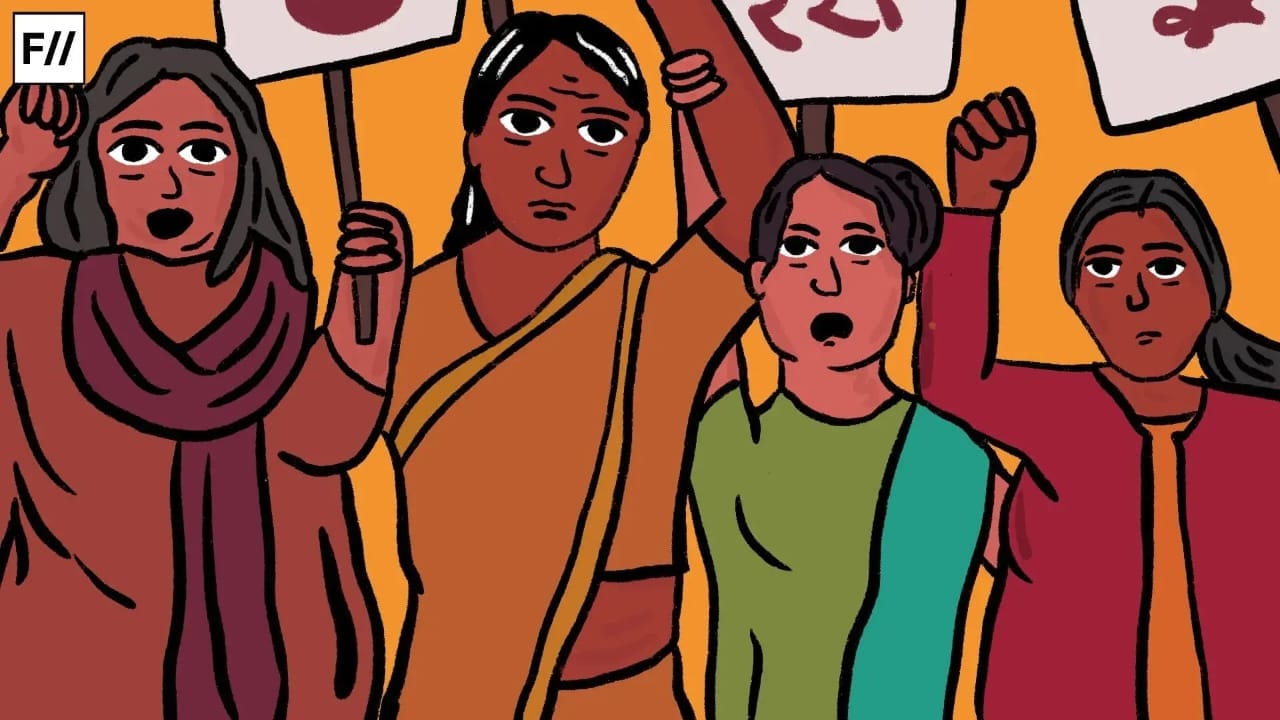‘Marriages are made in heaven and celebrated on Earth.’
Almost every Kashmiri invitation card religiously includes this word string. It emphasises on this pure belief of making two people, halves of each other, whole forever. We strongly believe this union needs nurturing and proper care, each moment of every day. We emphasise it needs responsible, honest, and forgiving individuals, who respect each other. What everyone also agrees upon is that for a successful matrimonial alliance, letting go of social disparities, unreasonable status differences, and corruptions that malign the whole idea of such a bond, is absolutely necessary. Sadly, we are too tightly wrapped in our egos and rigid personalities to actually let go. That makes us glorify a highly malevolent act − the dowry.
The ‘Art’
Dowry, in itself, is an ‘art’ − an elaborate masterpiece of misplaced social conformity. Interested parties are clever enough to trick their newly-inducted relatives into bringing in dowry on their own. The former’s image is not sacrificed in the process. Undoubtedly, this is art.
Many families shamelessly ask for gifts from the bride but as I’ve observed in an ensemble of Kashmiri weddings, attended all these years, such a lot are fewer in number. But to offset their low figures, other categories chime in. There are those who don’t demand anything at first, or all through the courting period, but as soon as the wedding date approaches, lists are handed out − either through the manzimyor (the middleman) or during a supposedly harmless tea-time conversation between the two parties.
The manzimyor, essentially, settles demands between families. When he finds it to his liking, the process is moved ahead. One of my relatives narrated her ordeal. Her daughter was to be married and before the Nikkah ceremony, the middleman approached her to ask about ‘arrangements’, both his own and of the in-laws. Usually, it is the groom’s family who traditionally employs the middleman for the proposal. So, the settlement is fixed amongst them beforehand. At the end, it was my aunt who had to offer whatever was demanded at the function. The middleman didn’t even regard guests from the bride’s family, who were present at that moment, and asked for the share up-front!
There’s an even bigger picture behind as pointed out in Kashmir Reader’s report.
Let’s move on to another group. These sets of in-laws start demanding dowry after marriage. This is the most common kind. They occasionally throw in phrases indicating an incessant need for dowry. Not withholding their greed, threats often accompany such conversations much to the chagrin of the new bride. The whole situation worsens when news reaches her parents. They would, of course, want to keep their child safe so they obediently comply, satiating egos of the gluttonous in-laws at the cost of their lives.
‘I am grieving the lost beauty and marriageable age of my daughters. I cannot afford their wedding as per today’s standard, coming from a low income household,’ says one daily-wager from Srinagar.
What is Considered Dowry in Kashmir?
Dowry comes in all shapes and sizes. For some, it is gold biscuits from Dubai, or precious jewellery from many of the best known jewelers from the Sarai. It may also include, and is not limited to, home furnishing, real-estate, cars, and cash.
What’s weirdly intriguing is that the families who ask for dowry don’t require such assets most of the time. They already own a well furnished house, comfort vehicles, and ornaments. To top it off, many of these families are filthy rich too. While some are not, the majority are generously literate. Why, then, do they need dowry is a conundrum?
After such a dexterous cabaret going on, the act still does not end here.
For every occasion, festival, birth, or death, the in-laws make sure to put forth honest opinions regarding any requirement. Wazwan − the special seven-dish menu prepared at joyous occasions in every Kashmiri household − is held mandatory. Even when a one-foot-in-the-grave great-grandmother visits from the groom’s side!
Variety of specialties arriving before the main course should be artfully decorated, then served. If, God forbid, these whims are not catered to, on any occasion, the guest party makes sure to issue daily reminders to the hosts. I have heard taunts such as shuub chakhne (they don’t have proper etiquette), kamm gaschke (will they run out of money?), goudnich lattei aes aamit (it was our first time visiting them) and many others.
Such affairs have an effect opposite to the desired on the two families where instead of respect, hostility thrives. And as expected, the host sanctimoniously prays the in-laws never set foot in their household. This, right here, desecrates the whole concept of marriage and sharing bonds. Nonetheless, it is true.
Combining all the above scenarios, what we realise is how the art of dowry, in its various forms, warps a healthy matrimony.
The Evil
To make sure their child is not harmed, parents make sure to provide her more than necessary on the pretext of providing gifts. These gifts are not really gifts for their daughter but for the family she married into. Here we will understand what lies at the other end of the stick.
Being cautious of the daughter’s well-being is okay, but it is not okay to flaunt what was sent or spent. While making sure the bride is seen as bringing affluence to the family by transporting a truckload of gifts, what these parents don’t realise is that there are others living in the neighbourhood or among their relatives, who can’t. Thus, in addition to fueling the nuisance of dowry, these families make marriages a forbidden territory for the rest.
“I am grieving the lost beauty and marriageable age of my daughters. I cannot afford their wedding as per today’s standard, coming from a low income household,” says one daily-wager from Srinagar.
He is not the only one. Many middle and low income families suffer equally.
Also read: Dowry-Related Violence Kills Over 20 Women Daily
These situations often give rise to suicides, and other social menaces in Kashmiri households. Studies have shown that due to sudden pressure, cases of self-mutilation, bipolar disorder, and depression have been reported. One such study from district Kulgam of Kashmir reported cases of domestic abuse related to dowry.
Making matters worse are those who seek well-off families and brides who can shell out hefty sums, notwithstanding the fact that the girl is leaving her dear home, for their son. All in all, what is left is dejection on part of intelligent, beautiful, and honest daughters, responsible enough to make a house a home − however, adequately unfortunate in not being able to offer the opposite party monetary benefits.
While making sure the bride is seen as bringing affluence to the family by transporting a truckload of gifts, what these parents don’t realise is that there are others living in the neighbourhood or among their relatives, who can’t. Thus, in addition to fueling the nuisance of dowry, these families make marriages a forbidden territory for the rest.
One such family in my neighborhood has an unmarried daughter about 45 years in age. People always mock her family and offer their, totally unasked for, two cents whenever and wherever they possibly can.
Kashmiris should understand what they call a marriage is actually far from it. Social evils have consumed us, to the extent of camouflaging with the landscape of our society, making everyone believe it is the way we should live or breathe. What, in fact, is the virus has been carefully cradled. It has prospered in ways no one can even dream of.
Also read: Complying With Dowry Demands Shattered My Belief In My Family’s Progressiveness
With new accessories added to adorn dowry, Kashmir has long forgotten the holy idea of a matrimonial alliance. The pillars of Islam, guiding principles of our religion, and Sunnah of our Prophet (PBUH) have all been taken for granted. People comply when these rules correspond in securing their selfish purpose while when essentially applicable, conveniently turn their backs. We have turned into an oblivious, inconsiderate society.
Featured Image Source: Daily Excelsior
About the author(s)
Currently working with an English daily, Kashmir Images, based in Srinagar, Kashmir, Adeela Hameed is a thoroughbred writer. She is a Fellow with Himalayan Journalists Collective Against Climate Change. Adeela is a guest contributor to the wildlife magazine, Saevus, and ecotech website, Green Clean Guide. She is a member of the writers' community, WissenMonk, and the Editor for their monthly magazine – Wisdom Quest. She works for environmental conservation and social sustainability.




